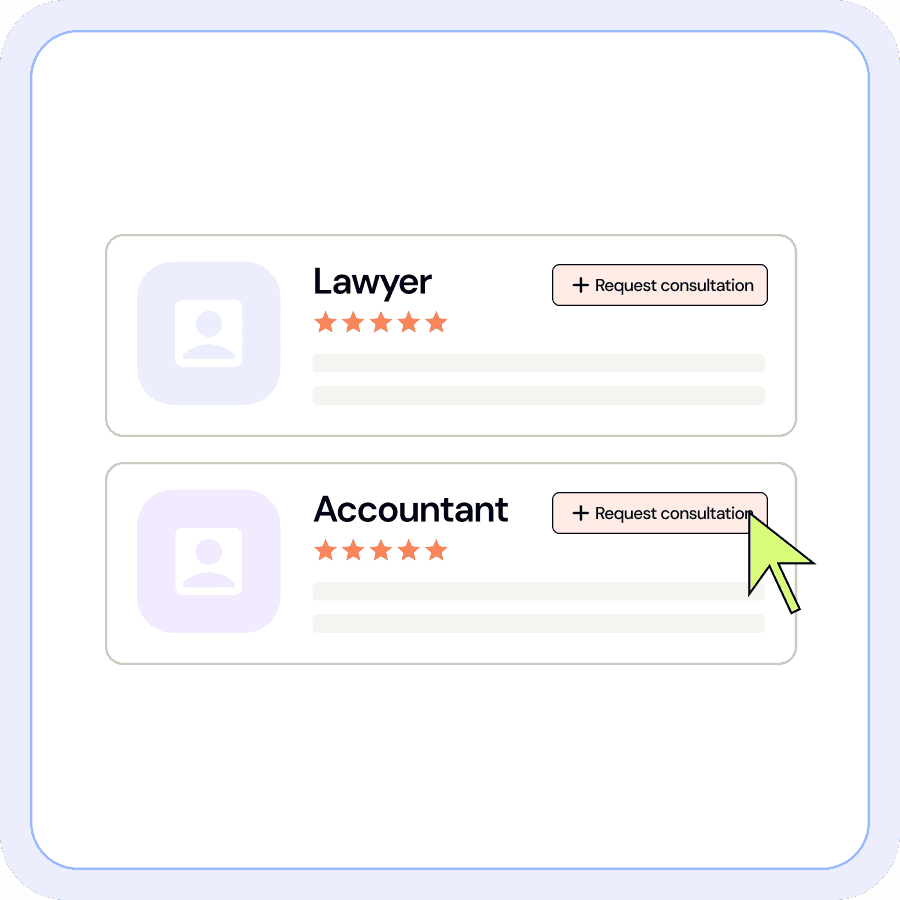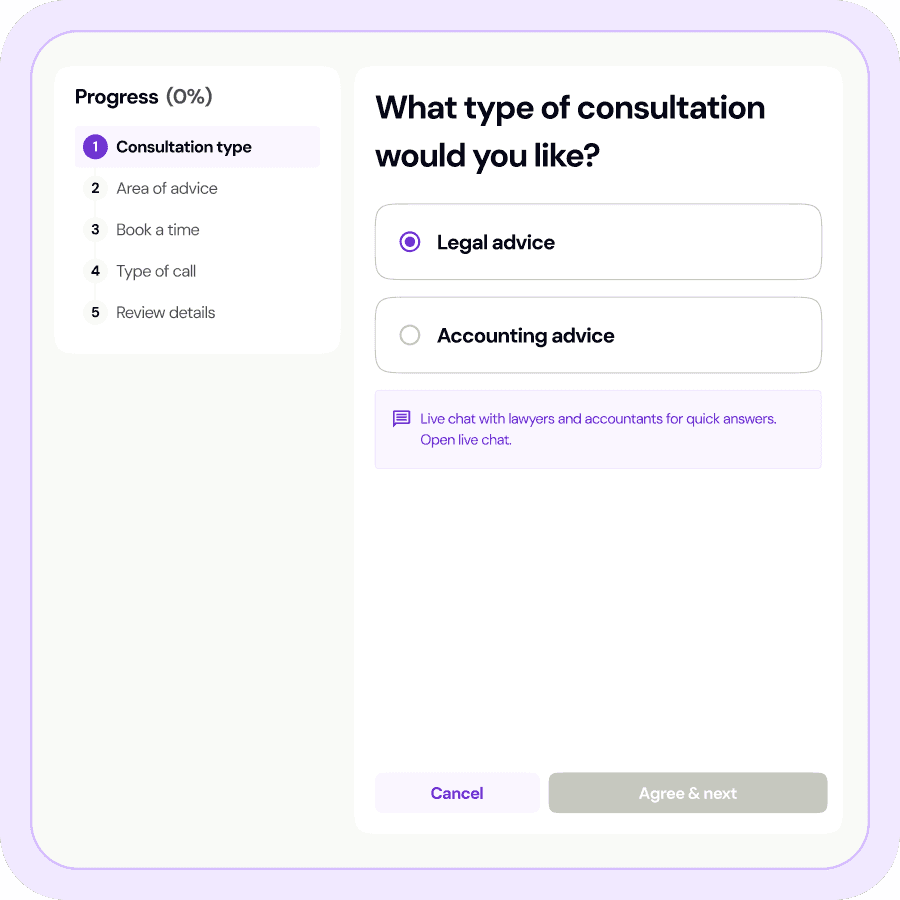Rising demand for local food delivery in Australia has transformed how Aussies dine. It’s a great time to get in on the action, but many new operators get caught up in the maze of legal, licensing, and food safety obligations.
Plus, depending on whether you’re prepping meals at home, hiring your own drivers, or partnering with established restaurants, you’ll need to consider different compliance requirements. Failing to understand these obligations can mean fines, business closure, or worse, risking public health.
We’ve got your back! In this guide, we will walk you through the practical and legal steps on how to start a food delivery business in Australia, no matter which business model you choose.
Table of Contents
Choose your food delivery business model
Before you register a business or hire your first driver, decide which food delivery model suits your goals and resources. Each model comes with unique legal, operational, and compliance implications.
- Aggregator partner (e.g., Uber Eats, DoorDash): You partner with existing platforms and act as a restaurant or driver.
- Independent delivery logistics provider: You build your own delivery network, serving restaurants or retailers, and become the aggregator
- Meal prep or home-based delivery: You prepare meals in your own kitchen and deliver directly to customers.
- Restaurant + delivery combo: You operate a dine-in restaurant with an in-house delivery service.
Aggregator partner model
If you partner with an aggregator, you sign up as a restaurant or driver with platforms like Uber Eats or DoorDash. The platform handles customer acquisition, payments, and often insurance, while you focus on food prep or delivery.
Legal obligations are lighter for drivers but still include ABN registration, insurance, and sometimes GST registration. Restaurants must comply with all food safety and business registration requirements.
Independent delivery model
Here, you create your own delivery network, servicing multiple restaurants or food outlets. You’ll need to register a business, hire or contract drivers, and manage logistics.
This model involves significant legal responsibilities: employment or contractor agreements, vehicle registration, insurance, and compliance with transport and food safety laws. You may also need to negotiate contracts with restaurants and manage customer service directly.
Meal prep or home-based model
Are you wondering how to start a food delivery business from home? If you’re preparing meals in your house or a small commercial kitchen, you face the strictest food safety and council compliance requirements.
You must register as a food business with your local council, obtain a Food Safety Supervisor certificate, and ensure your premises meet health and safety standards. You can manage delivery logistics in-house or outsource them, but you remain responsible for food safety until the meal reaches the customer.
Restaurant + delivery combo
Operating a restaurant with in-house delivery combines the obligations of both a dine-in venue and a delivery service.
You’ll need to comply with all restaurant licensing and food safety laws, plus vehicle registration, insurance, and driver agreements for the delivery side. This model offers control but increases your compliance burden.
Register your business and choose a legal structure
Independent of the model you choose, food business registration is mandatory in Australia. Choosing the right legal structure affects your tax, liability, and reporting obligations.
- Sole trader: This is the easiest to set up, and you have full control. However, you do face personal liability for debts.
- Partnership: In this model, you share both control and liability with one or more partners.
- Company: A company is a separate legal entity, making it more complex. That said, it offers liability protection and may reduce your tax burden.
For any of these structures, you’ll need to obtain an Australian Business Number (ABN). If you don’t operate under your own name, you’ll also need to register your business name.
Additionally, if your turnover is likely to exceed $75,000, you must register for Goods and Services Tax (GST). For company structures, you’ll also require a Tax File Number (TFN).
Do I need an ABN for a food delivery business?
Obtaining an ABN is essential for all food delivery businesses in Australia, regardless of whether you operate as a sole trader, partnership, or company.
The ABN serves as a unique identifier for your business and is a key requirement for legally conducting business activities. It enables you to issue invoices to customers and suppliers, claim GST credits, and register for other business-related taxes.
Without an ABN, you may face difficulties in opening a business bank account, entering into contracts, or working with aggregator platforms like Uber Eats or DoorDash. Additionally, having an ABN helps build trust with suppliers and customers, as it signals that your business is legitimate and compliant with Australian tax regulations.
Should I register for GST?
Registering for GST is mandatory if your food delivery business expects to have an annual turnover exceeding $75,000. Turnover includes all income from your business activities, including sales through delivery platforms, direct customer orders, and any other revenue streams.
Even if your turnover is below this threshold, you may choose to register voluntarily to claim GST credits on business expenses, which can improve cash flow. Early registration for GST can simplify your accounting processes by integrating GST collection and reporting from the outset, reducing the risk of non-compliance or penalties later on.
Once registered, you are required to include GST in your prices, issue tax invoices, and lodge Business Activity Statements (BAS) regularly with the Australian Taxation Office (ATO).
Apply for food business licences and permits
For many food businesses, this is the most critical compliance step. Of course, the exact licences and permits you need depend on your business model and state or territory.
Here are some of the key food business licenses in Australia.
- Food business registration: Mandatory with your local council for any business preparing, handling, or selling food.
- Food safety supervisor certificate: Required in most states for businesses handling high-risk foods.
- Environmental health approvals: Needed for home-based or non-traditional kitchens.
- Vehicle registration: If using your own fleet, you must register your vehicles for commercial use.
Remember that each state and territory has its own Food Act (e.g., NSW Food Act 2003, VIC Food Act 1984). Also, councils classify food businesses by risk, which affects inspection frequency and compliance requirements.
It’s critical to always check with your local council for specific rules and fees.
Understand your obligations under food safety laws
Food safety requirements in Australia are very strict. They are regulated nationally by the Australia New Zealand Food Standards Code, and enforced by state and local authorities. If you prepare or transport food, you must comply with the following.
- Safe storage and hygiene: Maintain strict cleanliness and prevent cross-contamination.
- Labelling requirements: Ensure all food is correctly labelled, especially for allergens and expiry dates.
- Temperature control: Hot food must be delivered at 60°C or hotter, cold food at 5°C or colder.
- Food safety plans: High-risk businesses must develop and maintain a documented food safety plan.
The Food Standards Code is mandatory for all food businesses in Australia. Non-compliance can result in fines, closure, or criminal charges. As such, make sure to stay updated with the latest requirements, as food safety laws are regularly reviewed and updated.
Protect your business with the right legal documents
Depending on your business model, you’ll need a suite of legal documents to protect your interests and ensure compliance. These documents help manage risk, clarify responsibilities, and provide a legal framework for resolving disputes.
- Contractor agreements: You’ll need to draft contractor agreements for people you hire, such as delivery drivers (especially if using independent contractors).
- Supplier agreements: If sourcing ingredients or partnering with restaurants, you’ll need to have supplier agreements in place.
- Food safety policy: Make sure to outline your commitment to food safety and compliance in a food safety policy.
- Commercial lease: If you run a kitchen or delivery hub, you’ll need a commercial lease agreement.
- Privacy Policy and Terms & Conditions: If you have a website or app, especially if collecting customer data, you’ll need to have a strict privacy policy and clearly state your terms and conditions.
Set up your payment and invoicing systems
Efficient payment and invoicing processes are essential for maintaining healthy cash flow and offsetting your food delivery startup costs quickly.
Start by opening a dedicated business bank account. This keeps your business finances separate from personal spending, making it easier to track income and expenses.
When issuing invoices, include all required details such as your ABN, business name, and GST if you are registered. Proper invoicing not only meets legal requirements but also helps avoid payment delays.
For online orders, integrate payment gateways such as Stripe, Square, or PayPal. These platforms make it simple for customers to pay and help streamline your order management.
Finally, consider using accounting software like Xero or MYOB to manage invoicing, payroll, and tax reporting. These tools can automate many financial tasks, reduce errors, and simplify your end-of-year accounting.
Insurance and legal risks to consider
Food delivery businesses face a range of risks, from food poisoning claims to delivery vehicle accidents. The right insurance cover can protect you from financial loss and legal disputes.
- Public liability insurance: Covers injury or property damage to third parties.
- Product liability insurance: Protects against claims related to food safety or contamination.
- Commercial vehicle insurance: Required for any business-owned delivery vehicles.
- Workers’ compensation: This is mandatory if you employ staff.
Many insurers offer tailored packages for food businesses and couriers. Review your policy annually and ensure all drivers and vehicles are correctly covered.
Common mistakes to avoid when starting a food delivery business
- Not checking local council laws before launching
- Failing to register for GST when required
- Operating without written contractor agreements
- Inadequate food handling documentation or training
- Overlooking vehicle registration and insurance requirements
- Not updating food safety plans as regulations change
- Ignoring privacy and data protection obligations
- Assuming aggregator platforms cover all your legal risks
- Underestimating the cost and complexity of compliance
- Not seeking professional legal or accounting advice early
To avoid common mistakes when starting your food delivery business, research local council requirements, register for GST when needed, and keep accurate financial records. Use written agreements for staff, maintain up-to-date food safety documentation, and ensure vehicles are properly registered and insured.
Additionally, stay current with food safety and privacy regulations, don’t rely solely on aggregator platforms for compliance, and seek professional advice early to set up effective systems and avoid costly errors.
Launching and running a compliant food delivery business
Launching a food delivery business in Australia is rewarding, but the regulatory landscape is complex and ever-changing. By choosing the right business model, registering properly, securing the necessary licences, and implementing robust food safety and legal frameworks, you can build a sustainable, compliant business.
Ready to launch your business with confidence? Lawpath makes it easy to register your company, create legally binding documents, and stay compliant, without the usual stress or legal fees. Get in touch today!








